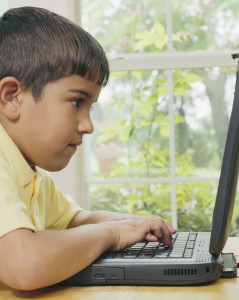- Because Our Children Are Watching
- Join the Cause
- Donate
Written by PTC | Published October 17, 2015
 Has your child expressed anger or anxiety after going online? This might be one of the signs of cyberbullying. The Internet is an exciting and powerful channel for education and entertainment. Nevertheless, it opens up an adult world which our children are not yet ready to understand. As parents, it is our responsibility to protect our children from possible threats. But these threats are no longer all visible or obvious. With technology becoming an integral part of our lives, we have to be aware of online dangers as well.
Cyberbullying is the dire threat for teenagers on the Internet. It has the same impact as the traditional bullying many of us have experienced. In fact, cyberbullying is considered even more dreadful for children than ordinary bullying. This is explained by the so-called “invisibility factor”: there is no face-to face contact with the bully, hence children feel that no one can see them being bullied; and without a visible bully, children feel they cannot actually fight back, which gives them a sense of hopelessness.
Cyberbullying is widespread among teenagers age 12-17. Kids are tormenting and harassing each other by commenting on photos, insulting videos, and sending private messages on social media websites like Facebook, Twitter, Instagram and “fast-chat” applications like Vine, Viber, WhatsApp and Skype.
Here are some facts on cyberbullying.
Has your child expressed anger or anxiety after going online? This might be one of the signs of cyberbullying. The Internet is an exciting and powerful channel for education and entertainment. Nevertheless, it opens up an adult world which our children are not yet ready to understand. As parents, it is our responsibility to protect our children from possible threats. But these threats are no longer all visible or obvious. With technology becoming an integral part of our lives, we have to be aware of online dangers as well.
Cyberbullying is the dire threat for teenagers on the Internet. It has the same impact as the traditional bullying many of us have experienced. In fact, cyberbullying is considered even more dreadful for children than ordinary bullying. This is explained by the so-called “invisibility factor”: there is no face-to face contact with the bully, hence children feel that no one can see them being bullied; and without a visible bully, children feel they cannot actually fight back, which gives them a sense of hopelessness.
Cyberbullying is widespread among teenagers age 12-17. Kids are tormenting and harassing each other by commenting on photos, insulting videos, and sending private messages on social media websites like Facebook, Twitter, Instagram and “fast-chat” applications like Vine, Viber, WhatsApp and Skype.
Here are some facts on cyberbullying.
Educate. Be the one to tell your kids about cyberbullying. Make sure you underline the importance of online privacy to avoid online fraud. Show your children the real cases of cyberbullying victims like Cora Delile and Amanda Todd.
Monitor online activity. You should trust your children, but you simply cannot trust all of the Internet’s users. Use Pumpic parental control app to monitor your child’s social media activity, including Facebook and Instagram. View their chats, comments, and photos, and the videos they’ve downloaded. You can also keep track of your child’s Internet messages like Skype and Viber. All applications will be visible to you as well. In addition, you can monitor your child’s real-time GPS location, call logs, text messages, key logs, and track their general online activity.
Play the celebrity card. Many teen idols like Demi Lovato, Taylor Swift, Selena Gomez, and Justin Bieber support anti-bullying initiatives by encouraging online victims to stand up to cyberbullying. They share their personal stories on Facebook, Twitter and YouTube and give supportive speeches during their concerts. Show your kids these videos and messages, and encourage them to come forward if they’re being bullied, too.
Remember, parents are responsible for their children’s well-being and happiness. Although we cannot protect them 24/7, we can make sure to do everything possible so their lives are stress-free.